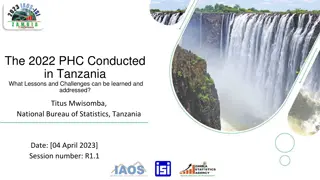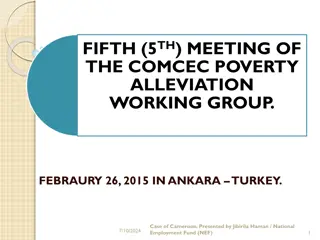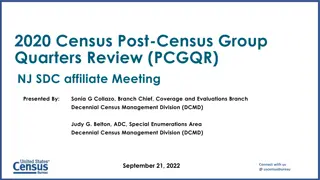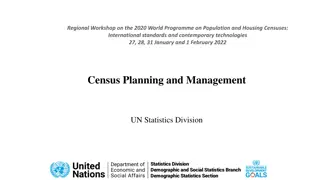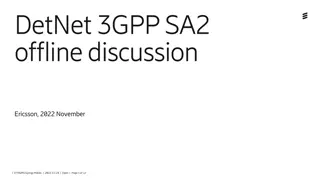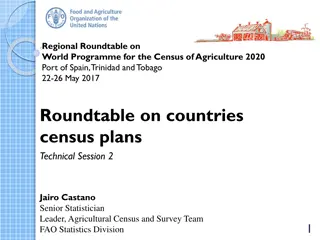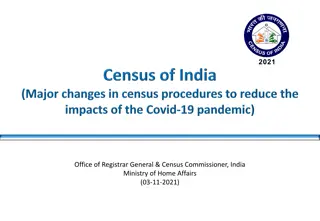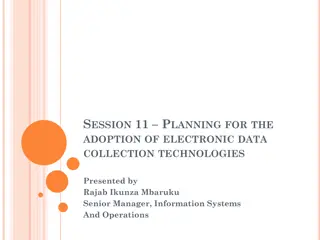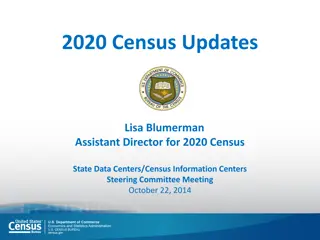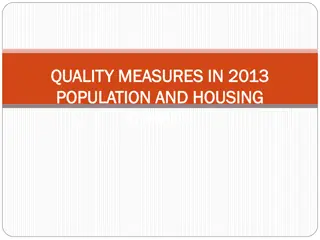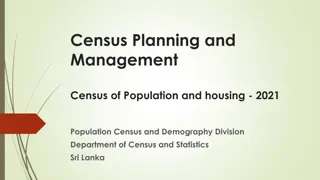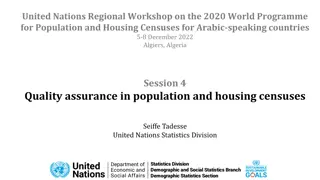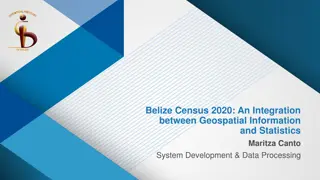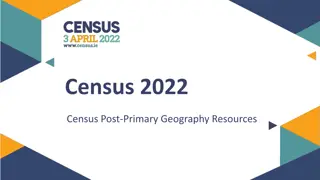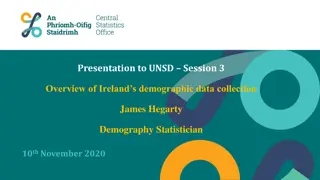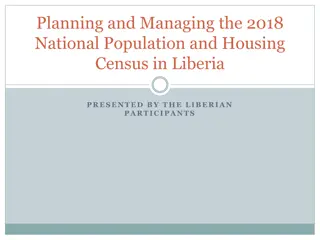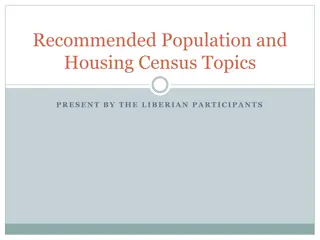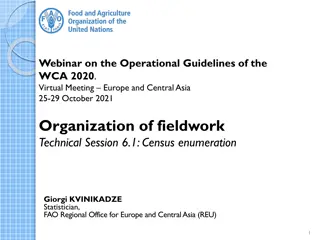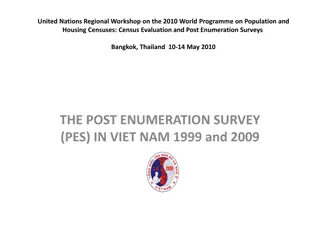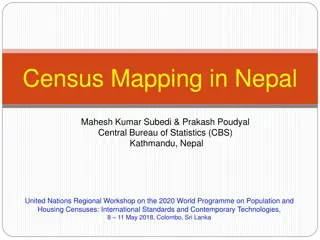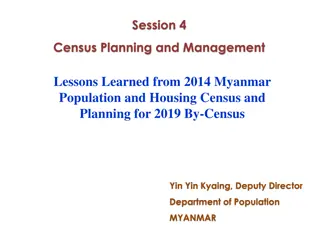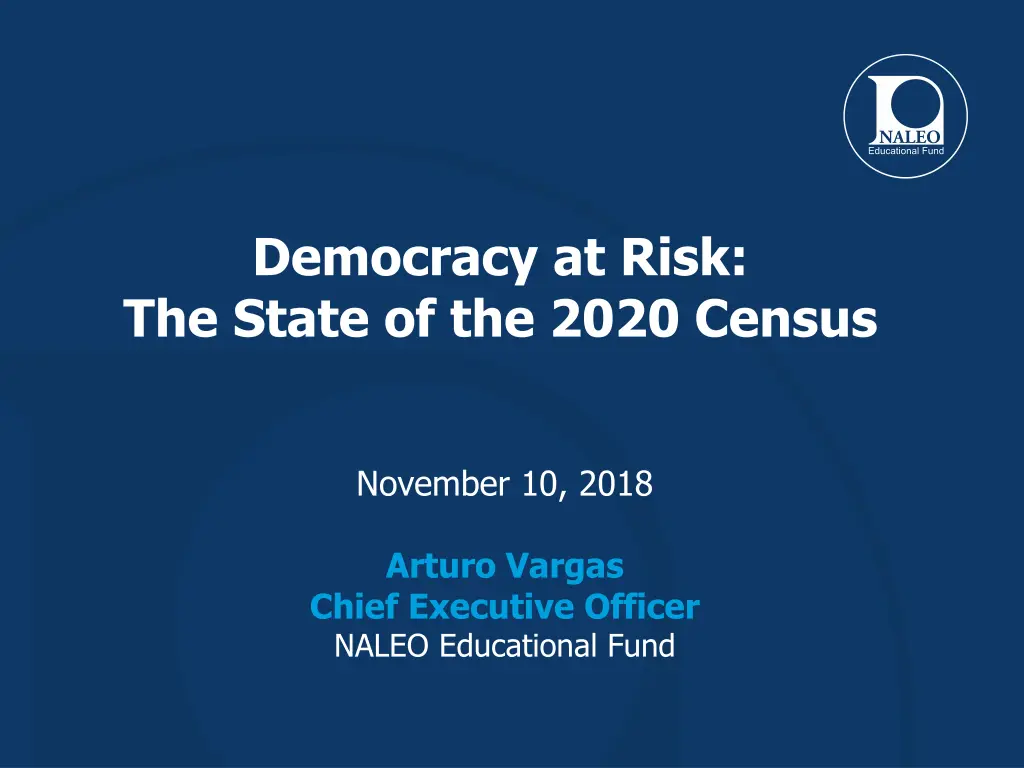
2020 Census Challenges and Implications for Latino Community
Explore the challenges and implications surrounding the 2020 Census, including proposed changes, underfunding issues, altered plans, and impact on the Latino community. Learn about the unique obstacles faced by rural areas, changes to race and ethnicity data collection, and concerns over public trust and privacy. Stay informed on key issues affecting the accuracy and inclusivity of this crucial demographic survey.
Download Presentation

Please find below an Image/Link to download the presentation.
The content on the website is provided AS IS for your information and personal use only. It may not be sold, licensed, or shared on other websites without obtaining consent from the author. If you encounter any issues during the download, it is possible that the publisher has removed the file from their server.
You are allowed to download the files provided on this website for personal or commercial use, subject to the condition that they are used lawfully. All files are the property of their respective owners.
The content on the website is provided AS IS for your information and personal use only. It may not be sold, licensed, or shared on other websites without obtaining consent from the author.
E N D
Presentation Transcript
Democracy at Risk: The State of the 2020 Census November 10, 2018 Arturo Vargas Chief Executive Officer NALEO Educational Fund
2020 Census Proposed Changes and New Approaches Bureau was mandated to conduct the 2020 Census at a lower cost per household than 2010. Its plans have fallen short and may now be the most expensive Census in history. Bureau is making final adjustments to changes and new approaches which all have important implications for the Latino community: Internet response as primary response option Redesign of questions on Hispanic origin and race Use of administrative records and other third-party data for address canvassing and non-response follow-up (NRFU) Reduction in number of local census offices, field staff, field presence
The 2020 Census that is proceeding is NOT the operation the Bureau has been planning for the past decade Years of underfunding have significantly altered the Bureau s preparations and plans for the 2020 Census. Rural communities hit hard: Update/Enumerate replaced by Update/Leave in most areas; no final tests in rural communities. Plans for the Dress Rehearsal in three diverse sites replaced by a single, limited End-to-End test in an urban site. Ban on hiring work-authorized non-U.S. citizens. The 2020 Census questionnaire has been radically changed in the final months before the enumeration, including the abrupt, unexplained changes to the Bureau s plans for data collection on Race and Ethnicity, and the last minute addition of a citizenship question.
Two-question format on Race and Hispanic origin for Census 2020 raises questions Latino Voter Impact in 2008 Only one Latino national origin will be reported by Census Bureau regardless of how respondents answer. Unclear how Latinos will be respond to detailed reporting of White and Black sub-group identifications; Afro- Caribbean examples not included in Black/African American question. Census Bureau projects that with this approach, Some other race will become second largest racial group in the nation after Census 2020.
Other administration and legislative issues No permanent Census Bureau Director since July 1, 2017. Dr. Stephen Dillingham has been nominated for the position; NALEO Educational Fund is evaluating the nomination The GAO has designated Census 2020 as a high risk activity, citing new enumeration approaches and uncertain, and underfunded, IT systems Erosion of public trust regarding the privacy of information given to the Census Bureau, including via the internet, and increased fear among immigrants in contact with the government The Census Bureau s financial situation has improved, but funding is still inadequate. FY 2019 appropriations projected to be $3.015 billion; advocates support $3.452 billion to adequately fund final preparations
Administrations last minute addition of a Citizenship Question puts Census 2020 at serious risk On March 26, the Secretary Ross agreed to a DOJ request and ordered the addition of a citizenship question Secretary Ross subsequently reported this was his idea all along, and that he asked DOJ to make the request Census Bureau submitted Census 2020 questionnaire to Congress with this question, but not with the topics as required by March 2017
Eight lawsuits are pending Two lawsuits in the Southern District of New York, which have been consolidated into one (State of New York, et. al.; ACLU and NYCLU); two lawsuits in the Northern District of California (State of California; LCCRUL), and the District of Maryland (MALDEF/AAAJC; National Redistricting Foundation) on the citizenship question. The New York case is proceeding most quickly. In July, Judge Jesse Furman granted additional discovery. Motions are now before the Supreme Court. Trial may start in November. Judges have rejected the Administration s motions to dismiss the litigation, and the cases are moving forward. MALDEF/AAAJC lawsuit includes American Indians, conspiracy theory. NAACP lawsuit alleges 2020 Census will undercount African Americans. Alabama filed lawsuit to remove undocumented immigrants from the reapportionment count.
NALEOs current position on the Citizenship Question Accurate and reliable information is not yet available about how the Census Bureau will handle the Citizenship Question; an internal working group will determine: What the Bureau will do if the question is left blank What will happen if the question is not answered accurately If it will use administrative records from DHS, Department of State, USCIS and other sources, to impute an answer The Administration has nominated a new Census Bureau Director and it is unknown what policy agenda he may implement Once these determinations are made, NALEO will be able to provide guidance on the Citizenship Question Community leaders must work to avoid panic and misinformation
NALEO MESSAGING RESEARCH GENERAL VIEWS ON CENSUS Participants had a generally positive view of the Census. You know in Spanish the word, desconfianza ? Ok that s how I feel about it So, for me personally, this gives me that desconfianza feeling, asking about citizenship. I don t think this Census is going to be very effective. Hesitation, fear, and cynicism arose among focus group participants when they saw a version of the actual questionnaire The citizenship question raised the most concerns, anxiety increased as participants considered the reality of providing their information to the current administration There was lack of confidence that the data provided would be kept confidential.
VIEWS ON RESPONSE MODES Survey respondents overwhelmingly expressed a preference to complete the Census by mail on a paper form (75 percent) Nearly 40 percent of respondents said it is not convenient to complete the form online There's people that don't have internet service down here in the Valley [Texas], some areas just don t have it. My mom is 61 years old and she s not going to go on the computer. She ll think it s a trick, won t like it, and won t fill it out. If I go help her out, yes, she ll do it. They are going to lose people who aren t comfortable online. Over 64 percent of respondents said that sending a Census worker to their home was not convenient
2020 CENSUS MESSAGES Any message is better than none: all four messages tested - Convenient, Safe, Required; Civic/Community Duty; Funding; Resistance/Defend Community - performed better than the control group which received no message Messages about Census participation being Convenient, Safe and Required showed the most positive response in the survey personal data and keeps your identity anonymous. By federal law, your response is required, and your information cannot be given out or shared Participating in the Census is safe and really easy, just a few clicks online. The Census protects your Messages about the role of Census data in providing funding for local schools and community programs were the most effective in the focus groups services, including education, police, fire, and health care. Our community schools, hospitals, and first responders are depending on us to do our part and participate in the Census The government relies on the Census population count to determine funding for state and local
2020 CENSUS MESSAGES (continued) Subgroup differences of note on the survey experiment Immigrants were especially responsive to the convenience, safety, and required message with 75 percent saying they would definitely participate in response to the message. This is consistent with the serious privacy concerns voiced in the study Women were most responsive to the civic and community duty message with 57 percent saying they would definitely participate in response to the message Latinos under age 40 were most responsive to the resistance message, with 53 percent saying they would definitely participate in response to the message
2020 CENSUS MESSENGERS MESSENGERS Consistent with previous NALEO voter engagement research, Family Members were the most trusted messengers Our previous voter engagement research also suggested that women in the household, in particular, were effective messengers Nurses, doctors, health providers and Latino community organizations were also highly trusted as messengers People who speak for the children or the schools such as teachers -- were especially trusted and convincing (our previous research on voter engagement had comparable findings) Elected officials were among the least trusted as a reliable source for information
Prepare for Census 2020 Review outreach and messaging approaches to determine strategies to adapt locally Use ROAM and CUNY mapping tools to identify Hard to Count Census tracts Identify partners and trusted messengers Work with state and local Complete Count Committees Advocate for state and local funding for Census outreach Urge Congress to provide the Census Bureau with adequate funding Push good candidates to apply for Census jobs Census.gov/jobs Plan a Get-Out-the Count campaign Prepare and disseminate informational materials Provide questionnaire assistance Conduct community forums Work with traditional and social media on messaging campaign
TAKE ACTION! #SaveTheCensus Join our Census 2020 campaign! Visit www.NALEO.org Email to censusGOTC@naleo.org with Subscribe in the subject line to join our Census email list. Text CENSUS to 97779 to join our SMS/Census Get Out the Count list. (Standard messaging rates apply).
Thank you. Arturo Vargas Chief Executive Officer avargas@naleo.org Twitter: @ArturoNALEO www.naleo.org

